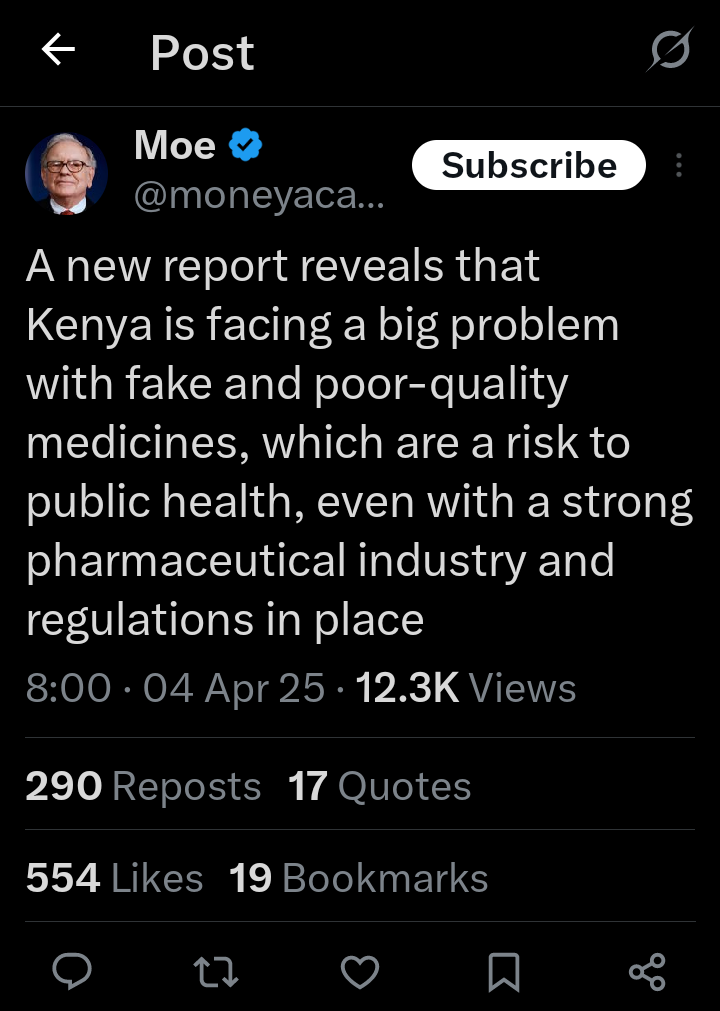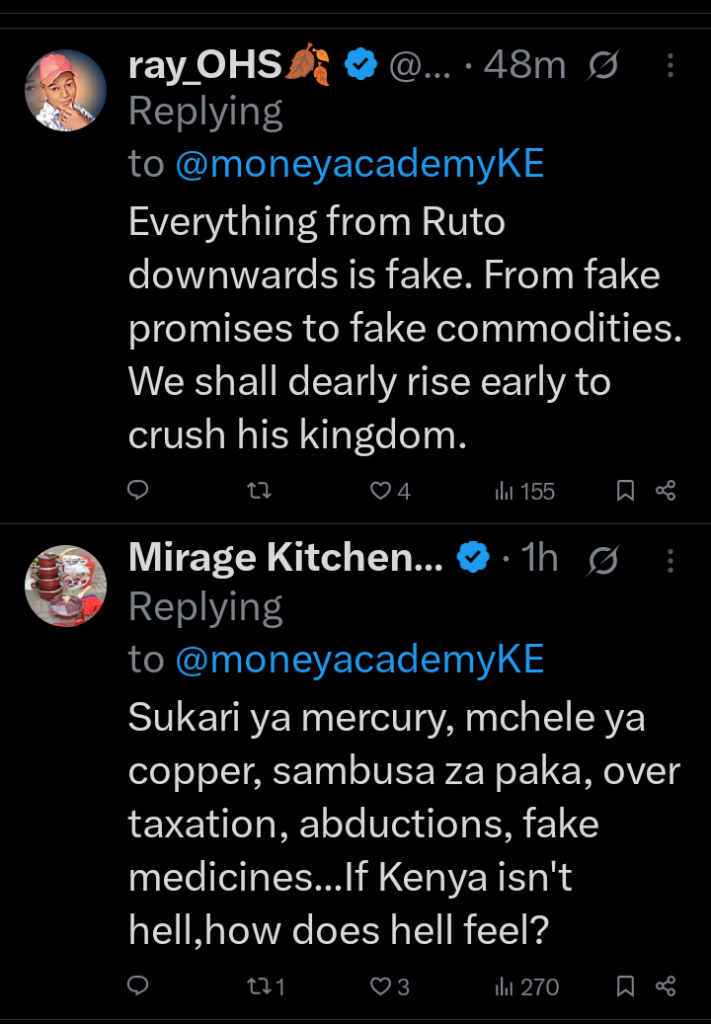Kenya is now facing a serious public health risk because of the growing problem of fake and poor-quality medicines. A new report shows that despite the country having a strong pharmaceutical industry and existing regulations, counterfeit drugs continue to enter the market and harm ordinary citizens.
This issue is becoming worse, especially in rural areas and informal markets where many people cannot tell the difference between real and fake medicine.
The report explains that some of these medicines are completely fake, containing no active ingredients at all, while others are expired or made in unhygienic conditions. In both cases, patients do not get the treatment they need.

This leads to longer illnesses, drug resistance, and in many cases, death. People suffering from diseases like malaria, tuberculosis, or even simple infections are put at high risk when they take drugs that do not work or are harmful.
For example, someone who takes fake antibiotics will not only fail to recover but may also develop resistance to real antibiotics in the future.
What makes the situation worse is that many Kenyans trust the medicine they buy from local chemists, street vendors, or online platforms. In some cases, unscrupulous business people sell cheap imported drugs from countries with weak manufacturing standards.
Others repackage expired drugs and make them look like new. These practices are difficult to detect unless there are proper inspections and regular monitoring.
The Pharmacy and Poisons Board (PPB), which is supposed to regulate medicines in Kenya, is clearly struggling to keep up. Although they have tried to introduce digital tracking systems and carry out occasional crackdowns, the number of fake drugs in the market is still very high.
Some of their officers have also been accused of taking bribes to allow the entry of unapproved products. This shows that the problem is not just about enforcement but also about corruption within the system.

The situation is also made worse by weak border control and a lack of equipment to test drugs properly at the ports.
As a result, fake products from other countries can easily enter Kenya. Once in the market, they spread quickly, especially because many people go for the cheapest option when it comes to medicine.
To deal with this crisis, the government needs to improve drug surveillance and ensure all chemists and health centers are properly licensed. There also needs to be public awareness campaigns to teach Kenyans how to identify genuine drugs and avoid suspicious sources.
Most importantly, there must be tough punishment for people involved in this dangerous trade. If nothing is done, more lives will be lost and Kenya’s health sector will continue to suffer.





















Add Comment